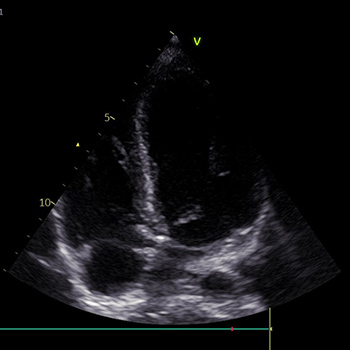Keywords
COVID-19, Kawasaki syndrome, vasculitis, adult, multisystem inflammatory syndrome
Abstract
Background: Kawasaki-like syndrome occurring in children during the COVID-19 pandemic has been labelled multisystem inflammatory syndrome in children (MIS-C) by the CDC and paediatric inflammatory multisystem syndrome temporally associated with SARS-CoV-2 infection (PIMS-TS) by the ECDC.
Case report: We report the case of an 18-year-old male patient presenting with a 72-hour history of abdominal pain, fever, erythematous skin rash, vomiting and diarrhoea. Examination showed he also had shock and he was first thought to have oedematous cholecystitis. SARS-CoV-2 infection was also diagnosed. He was admitted to the ICU, and echocardiography showed cardiac dysfunction, with a low ejection fraction and low cardiac index. High-sensitivity troponin serum levels were elevated. The patient received inotropic and vasopressor support. As he fulfilled several criteria for MIS-C/PIMS-TS, he was administered acetylsalicylic acid, corticosteroids and immunoglobulin, with a good clinical response.<br />
Conclusion: This case emphasizes how this severe presentation of COVID-19 can easily be misdiagnosed if the clinician is less aware of this syndrome in younger patients.
References

Views: 1805
HTML downloads: 105
PDF downloads: 667
Published:
2020-09-10
Issue:
2020: Vol 7 No 10
(view)










